Conferences
🌐suivre Marie-Anne Frison-Roche sur LinkedIn
🌐s'abonner à la Newsletter MAFR. Regulation, Compliance, Law
🌐s'abonner à la Newsletter par vidéos Surplomb, par MAFR
____
► Référence complète : M.-A. Frison-Roche, "Contrôle de la proportionnalité entre contraintes et pouvoirs : exemple de l’impératif technique d’inclusion", in M-A. Frison-Roche & G. Loiseau (dir.), Durabilité de l'Internet : le rôle des opérateurs du système des noms de domaine. Compliance et régulation de l'espace numérique, Journal of Regulation & Compliance (JoRC) et Institut de Recherche Juridique de la Sorbonne (André Tunc - IRJS), Université Paris I-Panthéon-Sorbonne, 21 février 2025.
____
🧮consulter le programme complet de cette manifestation
____
► Résumé de cette conférence :
____
🎥voir aussi la présentation de l'intervention de conclusion : Régulation, Compliance et Gouvernance : un équilibre à expliciter pour accroître la solidité de l’espace numérique
________
Conferences
🌐suivre Marie-Anne Frison-Roche sur LinkedIn
🌐s'abonner à la Newsletter MAFR. Regulation, Compliance, Law
🌐s'abonner à la Newsletter par vidéos Surplomb, par MAFR
____
► Référence complète : M.-A. Frison-Roche, "Régulation, Compliance et Gouvernance : un équilibre à expliciter pour accroître la solidité de l’espace numérique", in M-A. Frison-Roche & G. Loiseau (dir.), Durabilité de l'Internet : le rôle des opérateurs du système des noms de domaine. Compliance et régulation de l'espace numérique, Journal of Regulation & Compliance (JoRC) et Institut de Recherche Juridique de la Sorbonne (André Tunc - IRJS), Université Paris I-Panthéon-Sorbonne, 21 février 2025.
____
🧮consulter le programme complet de cette manifestation
____
► Résumé de cette conférence :
____
🎥voir aussi la présentation de l'autre intervention faite au cours de ce colloque : Contrôle de la proportionnalité entre contraintes et pouvoirs : exemple de l’impératif technique d’inclusion.
________
June 4, 2025
Publications
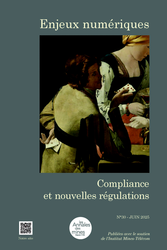
🌐follow Marie-Anne Frison-Roche on LinkedIn
🌐subscribe to the Newsletter MAFR Regulation, Compliance, Law
🌐subscribe to the Video Newsletter MAFR Surplomb
🌐subscribe to the Newsletter MaFR Droit & Art
____
► Full Reference: P. Bonis & M.-A. Frison-Roche, "Réguler le numérique, ou Sisyphe heureux" (Regulating Digital, or a happy Sisyphus), in P. Bonis & L. Castex (dir.), Compliance et Nouvelles Régulations, Les Annales des Mines, series "Enjeux numériques, June 2025, p.5-7.
____
📝read the article (in French)
____
📗read the table of content of this special issue of Enjeux numérique, Régulation et Compliance (in French), in which this introductory article is published.
____
► English Summary of this article: This introduction to the collective publication on Regulation and Compliance, which aims to bring order to the Digital space, takes up the idea expressed by Camus when he referred to 'happy' Sisyphus, and expresses the idea that Regulation and Compliance are applied to this area with difficulty, relentlessness and failure, with texts constantly being adopted, modified and amplified on all sides, while the Digital Space is constantly changing, and the slope is constantly being climbed again. But this should not be seen as a failure, not even a flaw, because it is in the nature of digital regulation to always place the regulatory apparatus on our shoulders.
This weight is shared by all, by the Authorities of all countries, because there is something common to all and also because there is something specific for each, because the techniques differ and because the visions of the world that the Politicians print in the texts and project in the Digital will always differ. This weight is also shared by companies, which internalise the rules through Compliance mechanisms, making them necessary agents for the efficiency and sustainability of the digital system, but also players in it, in articulation with Internet users in a permanent and unstable articulation with the local to the finest and this global that the Internet has invented.
This presentation opens the series of contributions to the collective publication Régulation et Compliance, which makes up this special issue of Enjeux numériques in Annales des Mines.
____
🌐read also the English presentation of:🕴️Marie-Anne Frison-Roche, 📝Le Droit de la compliance, voie royale pour réguler l'espace numérique (Compliance Law as a Royal Road for regulating the Digital Space)
________

Feb. 21, 2025
Organization of scientific events
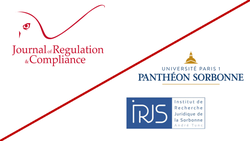
🌐follow Marie-Anne Frison-Roche on LinkedIn
🌐subscribe to the Newsletter MAFR. Regulation, Compliance, Law
🌐subscribe to the Newsletter Surplomb, par MAFR
____
► Full Reference: M.-A. Frison-Roche & G. Loiseau (dir.), Durabilité de l'Internet : le rôle des opérateurs du système des noms de domaine. Compliance et régulation de l'espace numérique (Sustainability of the Internet: the role of the operators of the domain name system. Compliance and regulation of the digital space), Journal of Regulation & Compliance (JoRC) and Institut de Recherche Juridique de la Sorbonne (André Tunc - IRJS), Paris 1 Panthéon-Sorbonne University, 21 Fabruary 2025
____
► General presentation of this symposium: The digital space has been built on and as a system. Its primary interest is of a negative nature: it consists of to be preserved against the prospect of systemic failure, of not collapsing. Like all other systems, this 'Monumental Goal' specific to the digital system justifies resources that incorporate this concern for the future. As with all systems, it integrates and relies on the specific technical nature of this system.
The digital space is largely based on the invention, technology and architecture of domain names. Domain names, as an addressing system, enable users to enter the digital space and find other Internet users. The uniqueness and solidity of the domain name system, entrusted to a single root and decentralisation, makes this community possible for those who use the digital space and ensures the technical durability required, without which the digital space would be compromised.
The architecture, operation, operators and what they do under the control of legislators, regulators, judges and legal subjects are therefore examined from a dual technical and legal perspective, in the light of the imperative of sustainability.
This allows to progress in 4 stages.
Firstly, to examine the permanence in time and space of the domain name system, insofar as it is the foundation of the Internet and the digital system. This technical construction gives rise to legal qualifications, not only for the present but also for the future, since the Web3 offers new technical solutions.
Secondly, this technical sustainability is an imperative that is built into the operators of the domain names themselves, which are inter-linked not only at national level but also at global level, this cross-linking being necessary for the security of the system. The State is present through public law techniques that enable surveillance, control and possible recovery.
Thirdly, it imposes constraints on the operators subject to them in order to serve this monumental goal of technical sustainability, and these constraints themselves generate as many powers as they need to usefully achieve this mission. This proportionality must be at the heart of the method and the requirements. The relationship between constraints and powers also stems from it.
Fourthly, this imperative of technical sustainability, which is global in nature, gives way to imperatives of societal sustainability, more localised in space and time, when domain name operators are called upon by the legitimate authors of binding standards, legislators in the first instance, to express concerns such as the protection of people involved in the digital space and whose rights are compromised or who are in danger.
This second type of sustainability, which is more localised and less inherent in the architecture of the Internet, is justified by the available power of the operators concerned and their adherence to social imperatives. The resulting constraints and powers are therefore not the same.
The 2 sustainabilities must then be articulated in a conception that is both teleological and pragmatic.
____
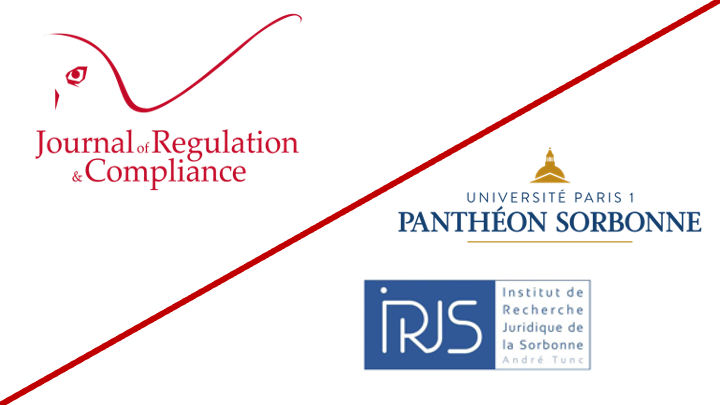
____
► Speakers (they will speak in French, but the book to be published will be in English):
🎤Pierre Bonis, Chief Executive Officer of the Association française pour le nommage Internet en coopération (Afnic)
🎤Lucien Castex, Adviser of the Afnic Chief Executive Officer for Research internet and society and Internet governance
🎤Marie-Anne Frison-Roche, Full Professor of Regulatory and Compliance Law, Director of the Journal of Regulation & Compliance (JoRC)
🎤Claire Leveneur, Senior Lecturer at Paris-Est Créteil University
🎤Grégoire Loiseau, Full Professor at Paris 1 Panthéon-Sorbonne University
🎤Samir Merabet, Full Professor at the University of West Indies
🎤Antoine Oumedjkane, Senior Lecturer at Lille University
🎤Frédéric Sardain, attorney at law, Jeantet law firm
____
read below a detailed presentation of this event⤵️

Feb. 18, 2025
Publications

🌐follow Marie-Anne Frison-Roche on LinkedIn
🌐subscribe to the Newsletter MAFR Regulation, Compliance, Law
🌐subscribe to the Vide Newsletter MAFR Hangover
____
 ► Full Reference: M.-A. Frison-Roche, The legal status of the domain name system as an infrastructure and its legal consequences, Working paper, February 2025
► Full Reference: M.-A. Frison-Roche, The legal status of the domain name system as an infrastructure and its legal consequences, Working paper, February 2025
____
🎥 This working paper is the basis of the contribution to the symposium co-organised by the Journal of Regulation & Compliance (JoRC) and the Institut de Recherche Juridique de la Sorbonne (André Tunc - IRJS), Durabilité de l'Internet : le rôle des opérateurs du système des noms de domaine. Compliance et régulation de l'espace numérique (Sustainability of the Internet: the role of domain name system operators. Compliance and Regulatory Law in the Digital Space).
____
📝 It will also form the basis of the forthcoming📕.
____
► Summary of this Working Paper: Les "noms de domaine" sont une réalité technique. Cette réalité technique s'est imposée, semblant avoir été à la fois peu "pensée" et peu "conçue" en Droit et, peut-être parce qu'elle fait peu l'objet de convoitise, le Droit de la concurrence qui neutralise la concrétude des choses et prestations pour se concentrer sur l'échange, ne les qualifie guère. C'est plutôt dans une perspective de "politique de concurrence" que les noms de domaine" sont appréhendés. Or, la politique de la concurrence exprime des souhaits et des perspectives, tandis que le Droit de la concurrence doit faire place au sein du système économique libéral à la perspective de Régulation.
► Summary of this Working Paper: "Domain names" are a technical reality. This technical reality has come to the fore, seeming to have been both little "thought out" and little "conceived" in Law and, perhaps because it is little coveted, Competition Law, which neutralises the concreteness of things and services in order to focus on exchange, hardly qualifies them. It is rather from the 'Competition Policy' perspective that 'domain names' are apprehended. However, Competition Policy expresses wishes and perspectives, while Competition aw must make way for the perspective of Regulatory Law inside the liberal economic system.
Looking at the technicalities of the domain name system, we can proceed in 3 stages.
Firstly, if a domain name is taken in isolation, it may appear as property and/or a projection of a person, and has rightly been described as such by the courts. But domain names only exist in relation to each other, the addressing system on which the Internet itself and the digital space that enables everyone to spread, reach and be reached were built. In this way, they constitute an Infrastructure in their plurality, in a uniqueness (I). The legal system must take account of this technological reality through the concept of Essential Infrastructure, which is well known in Regulatory legal perspective(I).
Secondly, the legal consequences of this legal qualification of Infrastructure must be detailed (II). Regulatory Law does not necessarily imply institutions, a regulatory authority being an indication rather than a criterion. Rather, it requires specific charges, powers and controls to ensure that the Infrastructure is established and operates to fulfill, now and in the future, the function that is crucially expected of it. Because the digital space was born of the Internet, an a-sectional and a-territorial space, Compliance Law, which is an extension of Regulatory Law, outside the sectors and internalised in the crucial operators, is essential as it is appropriate without diminishing the public dimension of the organisation.
Thirdly, the evidential dimension should be emphasised (III). Indeed, because we need to ensure that the Domain Names Infrastructure is always solid and reliable, so as not to risk a systemic failure of the Internet, and therefore of the digital space, we must not remain with the traditional system of burden of proof that rests on the person making the complaint. Because there is a Compliance Obligation, it is up to the crucial operators to credibly show their ability to ensure the technical sustainability of this infrastructure on which the digital space in which we live is based.
It shall be different if the issue is one of non-technical Sustainability, for example that which is linked to a particular societal project, in which the operators of the domain name system are not at the origin and are required on an ad hoc basis because they are in a good position to help the Authorities or because they wish to do so.
_____
🔓read the developments below⤵️

Oct. 25, 2024
MAFR TV : MAFR TV - Overhang

🌐suivre Marie-Anne Frison-Roche sur LinkedIn
🌐s'abonner à la Newsletter MAFR. Regulation, Compliance, Law
🌐s'abonner à la Newsletter Surplomb, par MAFR
____
► Référence complète : M.-A. Frison-Roche, "Cumul et articulation Droit spécial de la Compliance et Droit commun de la concurrence déloyale : l’arrêt de la CJUE du 4 octobre 2024 ND/DR", in série de vidéos Surplomb, 25 octobre 2024
____
🌐visionner sur LinkedIn cette vidéo de la série Surplomb
____
____
► Résumé de ce Surplomb : Sur question préjudicielle, la décision ND c/ DR de la CJUE du 4 octobre 2024 articule le Droit de la concurrence déloyale et protection des données, qui croise la vente de médicaments sur Internet.... Un pharmacien prend des informations personnelles sur la santé des acheteurs, un concurrent se plaint d'une violation du RGPD qui constitue un détournement de clientèle. Le RGPD n'ouvre pas une telle action. Ne la ferme pas non plus.
Bien que la protection des données soit assurée par des organes nationaux spéciaux et qu'il s'agit de protéger des droits spécifiques des personnes protégées, la Cour pose qu'un tiers peut se baser sur un tel comportement pour se situer sur le droit commun pour s'en plaindre, en tant qu'il est concurrent et qu'il peut alléguer que cela constitue un acte de concurrence déloyale.
Pour affirmer cela, Cour souligne qu'en premier lieu le RGPD ne confère pas de compétence exclusive et que d'autre part la convergence des actions renforce le Droit de l'Union car le RGPD vise aussi le flux des données, principe de liberté que protège aussi le droit de la concurrence déloyale, qui s'applique selon les conditions du droit (faute qualité, dommage, causalité).
____
🚧Lire le document de travail sous-jacent à ce Surplomb
____
🎬visionner ci-dessous cette vidéo de la série Surplomb⤵️
____
Surplomp, par mafr
la série de vidéos dédiée à la Régulation, la Compliance et la Vigilance
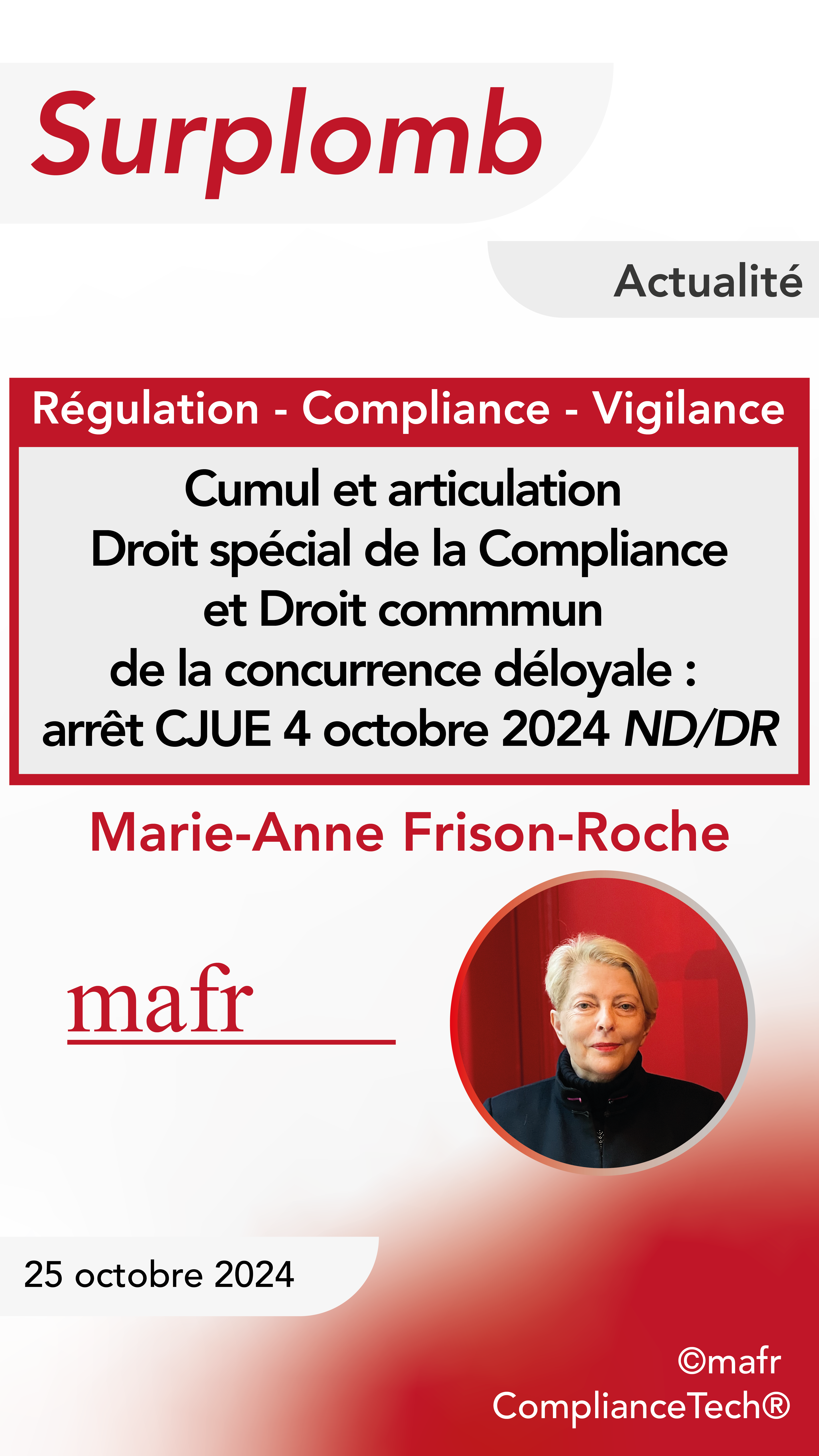

Sept. 22, 2024
Thesaurus : Doctrine
► Référence complète : Organisation des Nations Unies (ONU), Le Pacte pour l'avenir, 22 septembre 2024, 67 p.
____
________
April 30, 2024
Thesaurus : Doctrine
► Référence complète : NETmundial+10, Déclaration multipartite NETmundial+10. Renforcement des processus de gouvernance de l’Internet et de politique numérique, 30 avril 2024, 20 p.
____
________
Feb. 1, 2024
Teachings
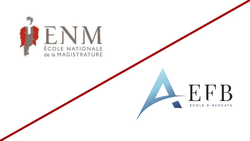
🌐follow Marie-Anne Frison-Roche on LinkedIn
🌐subscribe to the Newsletter MAFR Regulation, Compliance, Law
____
► Full Reference: F. Ancel & M.-A. Frison-Roche, Droit de la compliance (Compliance Law), École nationale de la magistrature - ENM (French National School for the Judiciary), in collaboration with the École de Formation professionnelle des Barreaux du ressort de la cour d'appel de Paris - EFB (Paris Bar School), Paris, February 1 and 2, 2024
This teaching is given in French.
____
____
► Presentation of the Teaching: The aim of this two-day conference is to enable judges and lawyers to grasp the issues, objectives and methods that define Compliance Law as it is practised in companies.
The speakers will illustrate the growing trend towards litigation, which is difficult to reconcile with the supranational dimension, or even indifference to territories, for example when disputes concern systemic climate or digital issues: the result is a renewal of the role of the judge and the role of lawyers.
This must be set against the renewal of the role and operation of companies themselves.
This is analysed from the perspective of Civil Law, in particular Contract Law and Liability Law. Company Law and Criminal Law are also addressed, as well as the way in which the legal system now integrates governance, regulation, climate and digital issues and the smooth operation of financial markets through Compliance techniques.
____
► Organisation of the Teaching: This conference is divided into two parts.
The first day is designed as a presentation of the major themes through which Compliance Law crosses the branches of traditional Law. The speakers will be professors of Law who will successively summarise the branches of Law and put into perspective the way in which Compliance imperatives give rise to new situations, new difficulties and new solutions.
This enables the second day to focus on practical and topical issues and to debate controversial questions between people of different sensibilities. The participants tend to be judges, members of regulatory authorities, lawyers, members of associations and so on.
____
► Enrolment procedure: The course is open to all judicial and consular magistrates, as well as lawyers.
Registrations can be made directly with the ENM or with the EFB.
____
► Speakers :
🎤François Ancel, Judge at the Première Chambre civile de la Cour de cassation (First Civil Chamber of the French Court of cassation)
🎤Thomas Baudesson, Attorney at the Paris Bar, Partner at Clifford Chance
🎤Guillaume Beaussonie, Full Professor at Toulouse 1 Capitole University
🎤Jacques Boulard, Premier Président de la Cour d’appel de Paris (First President of the Paris Court of Appeal)
🎤Marie Caffin-Moi, Full Professor at Paris Panthéon-Assas University
🎤Malik Chapuis, Judge at the Tribunal judiciaire de Paris (Paris First Instance Civil Court)
🎤Lucie Chatelain, Advocacy and Litigation Manager - Civil Liability of Parent Companies, Sherpa
🎤Jean-Benoît Devauges, Directeur Juridique, Ethique et Gouvernance des entreprises (Legal, Ethics and enterprises governance Director), MEDEF
🎤Marie-Anne Frison-Roche, Professor of Regulatory and Compliance Law, Director of the Journal of Regulation & Compliance (JoRC)
🎤Arnaud Gossement, Attorney at the Paris Bar, Partner at Gossement Avocats
🎤Thibault Goujon-Bethan, Full Professor at Jean Moulin Lyon 3 University
🎤Christophe Ingrain, Attorney at the Paris Bar, Partner at Darrois Villey Maillot Brochier
🎤Isabelle Jegouzo, Director of the Agence française anticorruption - AFA (French Anti-Corruption Agency)
🎤Anne-Valérie Le Fur, Full Professor at Versailles Saint-Quentin-en-Yvelines University
🎤Charlotte Michon, Attorney at the Paris Bar, partner at Charlotte Michon Avocat
🎤Jean-Baptiste Racine, Full Professor at Paris Panthéon-Assas University
🎤 Jean-Christophe Roda, Full Professor at Jean-Moulin Lyon 3 University
🎤Jérôme Simon, 1er Vice-Procureur Financier (First Financial Vice-Prosecutor)
____
🧮read below the programme put together and organised by François Ancel and Marie-Anne Frison-Roche, as well as the reports of each presentation⤵️
Sept. 1, 2023
Thesaurus : Doctrine
► Référence complète : J. Groffe-Charrier, "Contrôle de l’âge du public de contenus pornographiques : l’ouverture de la boîte de Pandore ?", Communication-Commerce électronique, n° 9, septembre 2023, pp. 1-4
____
► Résumé de l'article (fait par l'auteure) : "La protection des mineurs en ligne se traduit notamment, pour le Gouvernement, par la nécessité de contrôler l’âge des utilisateurs de sites proposant des contenus pornographiques, afin d’épargner les plus jeunes. Toutefois, si l’objectif est louable, les solutions envisagées ne sont pas sans risque et mettent en lumière les limites de la règle légale.".
____
🦉Cet article est accessible en texte intégral pour les personnes inscrites aux enseignements de la Professeure Marie-Anne Frison-Roche
________
Sept. 27, 2022
Thesaurus : Soft Law
► Référence complète : Conseil d'État, Les réseaux sociaux. Enjeu et opportunités pour la puissance publique, Rapport annuel, 2022.
____
________
Updated: Sept. 18, 2021 (Initial publication: Sept. 10, 1999)
Publications
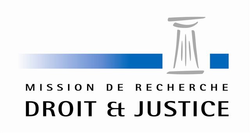
► Référence complète : Frison-Roche, M.-A., Droit, finance, autorité. Sociologie comparée des autorités de marchés financiers, recherches menées puis rapport rédigé pour le Laboratoire de sociologie juridique, Université Panthéon-Assas (Paris II), remis au GIP Mission de recherche Droit et justice, septembre 1999, dactyl., 117 p.
____
📝 Lire la table des matières de l'ouvrage.
____
📝 Lire le résumé et la synthèse de l'ouvrage en 4 pages.
____
📝 Lire le rapport
____
►Lire les deux monographies accompagnant le rapport :
📝 Bouthinon-Dumas, H., Le rôle des autorités de marchés financiers dans la crise asiatique vue à travers la presse
📝 V. Magnier, Les autorités de marchés financiers aux Etats-Unis. Droit, juge et autorité de marché
____
📝 Lire les synthèses concernant les différents pays étudiés
📝 Lire la grille d'entretien semi-ouvert
________
Dec. 10, 2020
Thesaurus : 03. Conseil d'Etat
Il résulte clairement de l'article 6 du règlement (UE) n° 2016/679 du 27 avril 2016 (dit " RGPD ") qu'un traitement de données à caractère personnel ne satisfait aux exigences du règlement, dès lors qu'il n'est nécessaire ni au respect d'une obligation légale à laquelle le responsable du traitement est soumis, ni à l'exécution d'une mission d'intérêt public ou relevant de l'exercice de l'autorité publique dont est investi le responsable du traitement, ni à la sauvegarde des intérêts vitaux de la personne concernée ou d'une autre personne physique, que si la personne concernée a consenti au traitement de ses données, sauf à ce que le traitement soit nécessaire à l'exécution d'un contrat auquel la personne concernée est partie ou à l'exécution de mesures précontractuelles prises à la demande de celle-ci, ou à ce qu'il soit nécessaire aux fins des intérêts légitimes poursuivis par le responsable du traitement ou par un tiers, à la condition, dans ce dernier cas, que ces intérêts légitimes puissent être regardés comme prévalant sur les intérêts des personnes concernées ou sur leurs libertés et droits fondamentaux.
Dec. 8, 2020
Thesaurus : Doctrine

► Référence complète : E. Balate, "Le consommateur", in J.-B. Racine (dir.), Le droit économique au XXIe siècle. Notions et enjeux, LGDJ, coll. "Droit & Économie", 2020, pp. 153-172
____
📕consulter une présentation générale de l'ouvrage, Le droit économique au XXIe siècle. Notions et enjeux, dans lequel cet article est publié
____
► Résumé de l'article :
____
🦉Cet article est accessible en texte intégral pour les personnes inscrites aux enseignements de la Professeure Marie-Anne Frison-Roche
________
Nov. 23, 2020
Interviews

Full reference: Frison-Roche, M.-A., Facebook: Quand le Droit de la Compliance démontre sa capacité à protéger les personnes (Facebook: When Compliance Law proves its ability to protect people), interview with Olivia Dufour, Actu-juridiques Lextenso, 23rd of November 2020
Read the interview (in French)
Read the news of the Newsletter MAFR - Law, Compliance, Regulation about this question
Oct. 1, 2020
Thesaurus : Soft Law
Full reference: Baer, B., Proposals to Strengthen the Antitrust Laws and Restore Competition Online, Testimony before the United-States House of Representatives, Committee on Judiciary, Subcommittee on Antitrust, Commercial and Administrative Law, 1st of October 2020
Read Bill Baer's presentation by Brookings Institution of which he is a member
Sept. 21, 2020
Law by Illustrations

This working paper is an extraction of an eponym newsletter published in the Newsletter MAFR - Law, Regulation & Compliance on 21st of September 2020 on LinkedIn.
Sept. 21, 2020
Newsletter MAFR - Law, Compliance, Regulation

Full reference: Frison-Roche, M.-A., Regulation, Compliance & Cinema: learning about Internet Regulation with the series "Criminals", Newsletter MAFR - Law, Compliance, Regulation, 21st of September 2020
Read by freely subscribing other news of the Newsletter MAFR - Law, Compliance, Regulation
Summary of the news:
Season 2 Episode 3 of the British version of the series "Criminals" features the character of Danielle. Danielle is a mother which has decided to hunt down pedophiles on social networks in order to trap them and show to the world their acts. Danielle insists on the efficiency of her action with regard to the police and justice that she finds unproductive. In the episode, Danielle is accused of defamation by the police. While policemen try to explain to Danielle the importance of using a regular procedure and to respect the Rule of Law aiming to prove its accusations, she makes efficiency her only principle. According to her, her methods get results (on the contrary of those used by the police which respect procedures) and those she accuses to be pedophiles do not deserve defense rights.
We can learn three lessons from Danielle's story:
- If Compliance Law is just a process of application of mechanical rules, then Rule of Law is not salient face to the principle of efficiency. But, if Compliance Law is defined by its "monumental goals" and that the respect of Rule of Law is erected in "monumental goal", then efficiency and Rule of Law become compatible and congruent.
- The digital space must be disciplined by crucial digital firms supervised by public authorities, like in France or Germany for hate speeches and disinformation.
- Compliance Law, and Law in general, must be pedagogue towards individuals as Danielle which do not understand why their behaviors are reproachable.
Sept. 16, 2020
Publications

🌐follow Marie-Anne Frison-Roche on LinkedIn
🌐subscribe to the Newsletter MAFR Regulation, Compliance, Law
____
Full reference: M.-A. Frison-Roche, Se tenir bien dans l'espace numérique, in Penser le droit de la pensée. Mélanges en l'honneur de Michel Vivant, Lexis Nexis and Dalloz, 2020, pp. 155-168.
____
📝Read the article (in French)
____
English summary of the article: The digital space is one of the scarce spaces not framed by a specific branch of Law, Freedom also offering opportunity to its actors to not "behave well", that is to express and diffuse broadly and immediately hateful thoughts through Hate speechs, which remained before in private or limited circles. The intimacy of Law and of the legal notion of Person is broken: Digital permits to individuals or organizations to act as demultiplied and anonymous characters, digital depersonalized actors who carry behaviors that are hurtful to other's dignity.
Against that, Compliance Law offers an appropriate solution: internalizing in digital crucial operators the mission to disciplinary and substantially hold the digital space. The digital space has been structured by powerful firms able to maintain order. Because Law must not reduce digital space to be only a neutral market of digital prestations, these crucial operators, like social networks or search engines, must be forced to substantially control behaviors. It could be about an obligation of internet users to act with their face uncover, "real identity" policy controlled by firms, and to respect others' rights, privacy rights, dignity, intellectual property rights. In their Regulatory function, digital crucial firms must be supervised by public authorities.
Thus, Compliance law substantially defined is the protector of the person as "subject of law" in the digital space, by the respect that others must have, this space passing from the status of free space to the one of civilized space, in which everyone is obliged to behave well.
______
Read to go further:
- Frison-Roche, M.-A., L'apport du Droit de la Compliance à la gouvernance d'Internet, 2019
- Frison-Roche, M.-A. (dir.), Internet, un espace d'interrégulation, 2016
Sept. 10, 2020
Newsletter MAFR - Law, Compliance, Regulation

Full reference: Frison-Roche, M.-A., Responding to an email with "serious anomalies",transferring personal data, blocks reimbursement by the bank: French Cour de cassation, July 1st 2020, Newsletter MAFR - Law, Compliance, Regulation, 10th of September 2020
Read by freely subscribing other news of the Newsletter MAFR - Law, Compliance, Regulation
Summary of the news
"Phishing" is a kind of cyber criminality aiming to obtain, by sending fraudulent emails which look like to those sent by legitimate organisms, recipient's personal information in order to impersonate or steal him or her. As it is difficult to find the authors of "phishing" and to prove their intentionality in order to punish them directly, on mean to fight against "phishing" could be to entitle banks to secure their information network and, to accompany this obligation with a strong incentive, to convict them to reimburse the victims in case of robbery of their personal data.
In 2015, a client victime of this kind of fraud asked to his bank, the Crédit Mutuel, to reimburse him the amount stole, what the bank refused to do on the grounds that the client committed a fault, transferring its confidential information without checking the email, however grossly counterfeit. The Court of first instance gave reason to the client because although he committed this fault, he was in good faith. This judgment was broken by the Chambre commerciale de la Cour de cassation (French Judicial Supreme Court) by a decision of 1st of July 2020 which states that this serious negligence, exclusive of any consideration of good faith, justifies the absence of reimbursement by the bank.
___
From this particular case, we can draw three lessons:
- The Cour de Cassation states that good faith is not a salient criterion and that, as the bank must react when a banking account is objectively abnormal, the client must react face to an obviously abnormal email.
- The Cour de Cassation describes the repartition of proof burden. Proof obligations are alternatively distributed between the bank and its client. First, the bank must secure its information network but, secondly, the client must take every reasonable measure to preserve its safety. It results from this that, if the email seems normal, phishing damages must be supported by the bank, and more generally of by the firm, while if the email is obviously abnormal, they must be supported by the client, but the burden to prove the abnormality of the email must be supported by the firm and not by the client.
- Such a proof system shows that Compliance Law includes a pedagogic mission by educating each client in order to he or she would be able to distinguish among his or her emails, those which are normal and those which are obviously suspect. This pedagogic dimension, with the legal consequences associated to it, will not stop to spread.
______
Aug. 31, 2020
Newsletter MAFR - Law, Compliance, Regulation

Full reference: Frison-Roche, M.-A., Compliance by Design, a new weapon? Opinion of Facebook about Apple new technical dispositions on Personal Data protection, Newsletter MAFR - Law, Compliance, Regulation, 31st of August 2020
Read by freely subscribing other news of the Newsletter MAFR - Law, Compliance, Regulation
Summary of the news:
Personal Data, as they are information, are Compliance Tools. They represent a precious resource for firms which must implement a vigilance plan in order to prevent corruption, money laundering or terrorism financing, for examples. It is the reason why personal data are the angular stone of "Compliance by design" systems. However, the use of these data cannot clear the firm of its simultaneous obligation to protect these same personal data, that is also a "monumental goal" of Compliance Law.
In order to be able to exploit these data in an objective of Compliance and protecting them in the same time, the digital firm Apple adopted for example new dispositions in order to the exploitation of the Identifier For Advertisers (IDFA) integrated in the iPad and in the iPhone and broadly used by targeted advertising firms, is conditioned to the consumer's consent.
Facebook reacted to this new disposition explaining that such measures will restrict the access to data for advertisers who will suffer from that. Facebook suspects Apple to block the access to advertisers in order to develop its own advertising tool. Facebook guaranteed to advertisers who work with it that it will not take similar measures and that it will always favor consultation before decision making in order to concile sometimes divergent interests.
We can sleep and already make some remarks:
- GDPR imposing to companies that they guarantee a minimal level of protection for personal data does not apply in the United-States. It is then possible that Apple acted through Corporate Social Responsibility (CSR), more than through legal obligation.
- The mode of regulation used here is the "conversational regulation" theorized by Julia Black. Indeed, regulators let the forces in presence discuss.
- This "conversational regulation" does not seem to be very efficient in this case and an intervention of administrative authorities or of judges could be justified via Competition Law, Regulation Law or Compliance Law, knowing that Competition Law will favor access right to information and Regulation or Compliance Law private life right.
The whole paradox of Compliance Law rests in the equilibrium between circulation of information and secret.
Aug. 27, 2020
Newsletter MAFR - Law, Compliance, Regulation

Full reference: Frison-Roche, M.-A., "Interregulation" between Payments System and Personal Data Protection: how to organize this "interplay"?, Newsletter MAFR - Law, Compliance, Regulation, 27th of August 2020
Read by freely subscribing the other news of the Newsletter MAFR - Law, Compliance, Regulation
Summary of the news
Regulation Law, in order to recognize and draw the consequences from the specificities of some objects, has been build, at the start, around the notion of "technical sector" although their delimitation is partially related to a political choice. But, in facts, there are multiple points of contacts between sectors, actors moving from one to another as objects. The regulatory solution is so to climb over some technical borders through the methodology of interregulation which is by the way the only one to enable the regulation of some phenomena going beyond the notion of sector and related to Compliance Law.
This news takes the exemple of companies furnishing new payment services. In order to they can provide these services, these firms needs to access to banking accounts of concerned people and so to very sensitive personal data. Regulation of such a configuration needs a cooperation between the banking regulator and the personal data regulator. Legislation being not sufficient to organize in Ex Ante this interregulation, the European Data Protection Board has published some guidelines on 17th of July 2020 about the way it conceives the articulation between the PSD2 (European directive about payment services) and GDPR and has announced that it intended to expand the circle of its interlocutors to do this interregulation. Such an initiative from EDPB can be justified by the uncertainty about how interpreting both texts and articulating them.
Aug. 18, 2020
Newsletter MAFR - Law, Compliance, Regulation

Full reference: Frison-Roche, M.-A., Can Coordination between local Regulators replace a unique centralized Regulator? Example of the European organisation of the Open Internet Principle, Newsletter MAFR - Law, Compliance, Regulation, 18th of August 2020
Read, by freely subscribing, the other news of the Newsletter MAFR - Law, Compliance, Regulation
To go further, read Marie-Anne Frison-Roche's article: The hypothesis of interregulation
Summary of the news
The principle of "open internet" enshrined in the European regulation of 30th of April 2016 guaranteeing a non discriminatory access to Internet contents and services. However, there is no European regulator to implement such a principle. Is it possible to guarantee the effectivity of this principle without a central regulator in charge of this principle?
On 11st of June 2020, the BEREC (Body of European Regulators for Electronic Communications) adopted guidelines concerning the application of the open internet principle. The BEREC is not a European regulator but a network of national regulators aiming to coordinate their actions. This body is only a consultative body but its recommendations are taken into account by national authorities which have deep legal power, as Osborne-Clarke said about the technical implementation of the European principle of open internet at the national level.
It is thus non necessary to have a central regulator to ensure the effectivity of a principle since the moment when there is a local regulators network able to coordinate their actions through soft law.
July 8, 2020
Thesaurus : Doctrine

► Référence complète : D. Chelly, Stratégie web. Le rôle central des noms de domaine, Gecop, 2020, 253 p.
____
____
📗lire la table des matières de l'ouvrage
____
► Résumé de l'ouvrage (fait par l'éditeur) : "Simple outil technique avant 2000, le nom de domaine est devenu un élément-clé de la stratégie internet.
Les entreprises sont à la recherche de référentiels pour les questions juridiques, paramétrages informatiques, optimisation pour le référencement et choix marketing.
L'ouvrage propose un état des bonnes pratiques pour l'utilisation des noms de domaine, dans une démarche multidisciplinaire.".
________
June 18, 2020
Thesaurus : 01. Conseil constitutionnel